From pastor’s son to power broker, Lee Chatfield takes Lansing
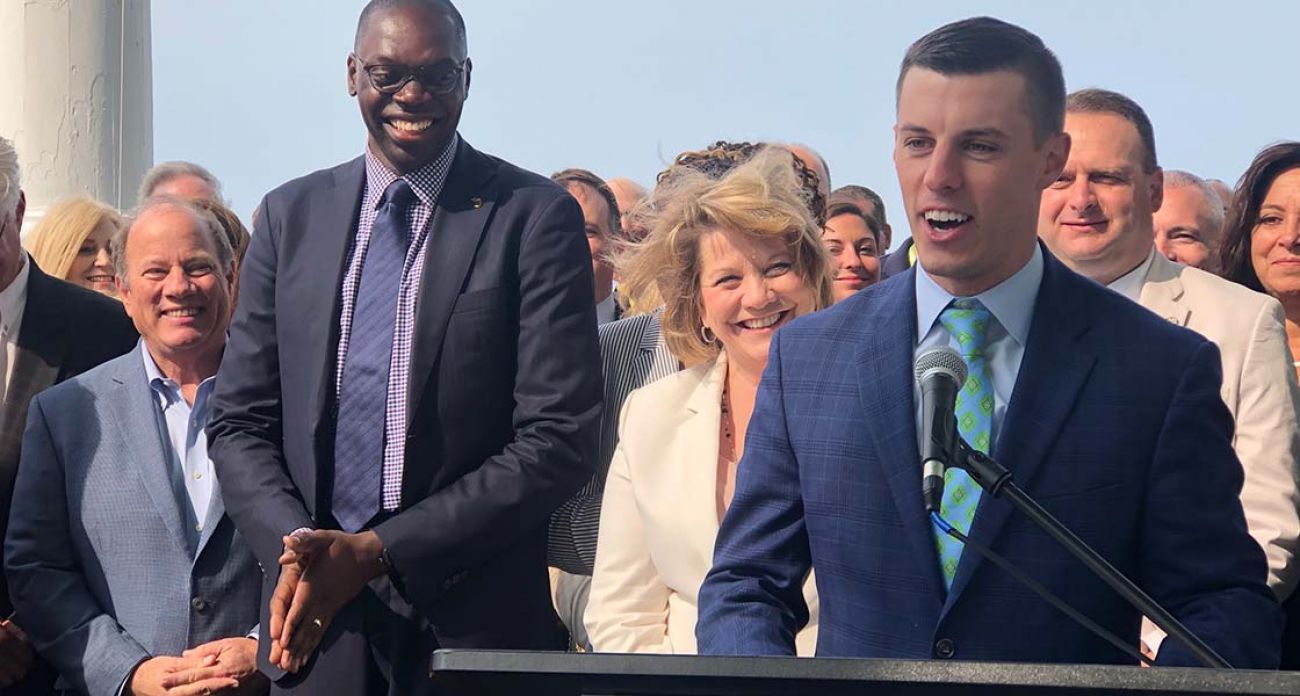
- Jan. 25: Lee Chatfield raised millions, traveled often. Michigan law kept much secret
- Jan. 21, 2022: Michigan school run by Lee Chatfield’s family didn’t report past abuse claim
- Jan. 12, 2022: Citing likely suit, Lee Chatfield accuser demands church, school save info
- Jan 11, 2022: From pulpit, Lee Chatfield’s father declares ‘the truth will come forward’
- Jan. 7, 2022: Sister-in-law: Ex-MI House Speaker Lee Chatfield sexually assaulted me as teen
BURT LAKE—Drivers curving around Burt Lake on state Highway 68 can’t miss Northern Michigan Baptist Bible Church, a sprawling brown-and-white building with an American flag out front and “Jesus Christ is Lord” emblazoned on the wall.
Students at the church’s K-12 school, Northern Michigan Christian Academy, read the U.S. Constitution in full every year. A small portrait of President Trump hangs next to a chalkboard. Books by Sean Hannity, Bill O’Reilly and Mike Huckabee sit near the encyclopedias and dictionaries on a classroom bookshelf.
This is where Michigan Speaker of the House Lee Chatfield came of age before entering politics. First as a congregant, one of seven children of the church pastor, Rusty Chatfield. Then as a student, and later as a soccer coach and teacher.
He grew up steeped in faith, service and small-government philosophy — which would become fundamental to his job this year leading a Republican-dominated chamber, a time when little gets done without the agreement of a Democratic governor. It’s in this position, those close to him say, that the young Speaker, at 31, has learned to temper ideology with pragmatism.
“It’s no secret that my father is a conservative,” Chatfield said of his upbringing.
“But he always challenged me to think for myself and always see both sides of an issue. I think that’s part of the reason why I can work with folks in Lansing whether they’re on the right side or the left side of the aisle.”
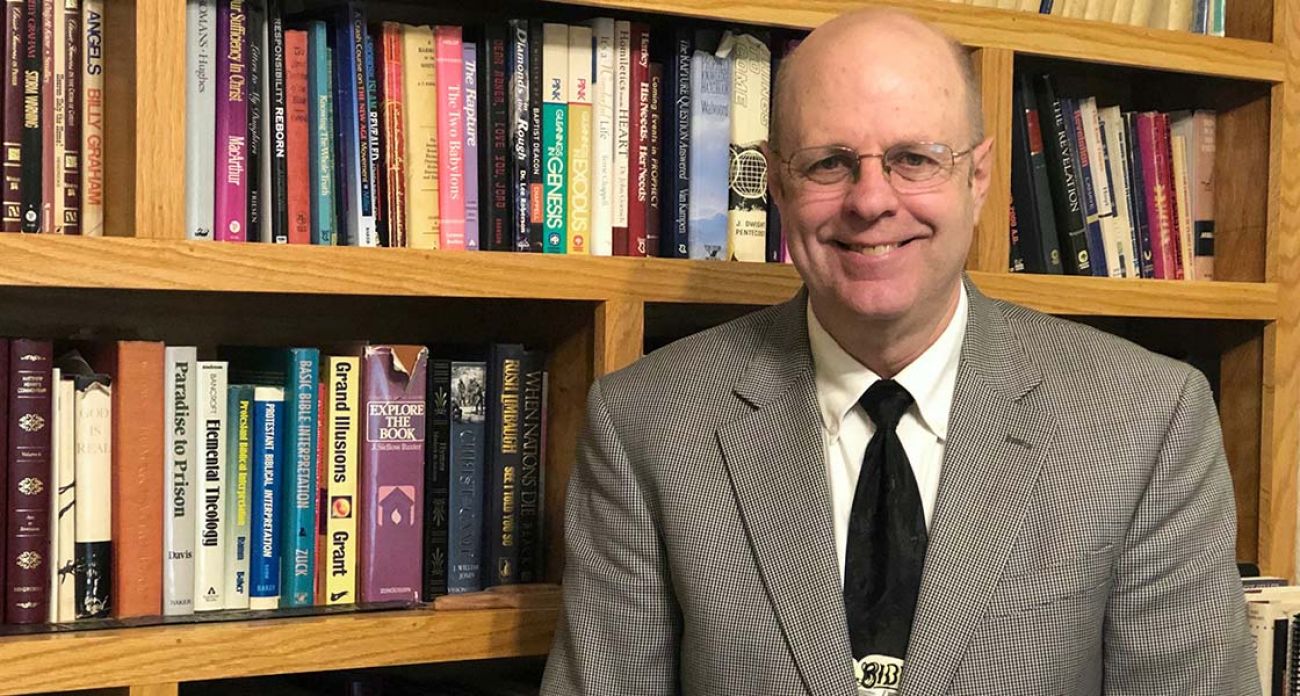
Those skills will be tested this summer when Chatfield and fellow Republican Mike Shirkey, the Senate Majority Leader, face off against Gov. Gretchen Whitmer over one of the biggest, most intractable issues facing state government: How to raise more than $2 billion a year to fix roads that residents of every political stripe agree are horrible. Whitmer opened the debate in March with a proposed 45-cent hike to the state’s gas tax. Republicans have responded with promises to reduce spending in other corners of the state budget and redirect existing taxes.
Related: See how much a 45-cent Michigan gas tax might cost you
The final contours of a deal may settle somewhere in the middle, a mix of new taxes and existing revenue; compromise that will likely test political principles on both sides. Early reviews suggest Chatfield, the state’s youngest Speaker in more than a century, has the soft skills to keep fellow lawmakers at the table.
“In a political arena where there’s a constant search for villains, Lee is difficult to villainize,” said Mark Bernstein, a Democrat who serves on the University of Michigan Board of Regents and led Whitmer’s transition team.
“Policies are a different conversation, but his personality makes him a person that you want to work with... it’s an old-school ethos in a millennial representation.”
By all accounts, Chatfield still hews closely to the conservative beliefs he brought into office. While some in the Republican party slowly become more open to gay rights such as same-sex marriage, Chatfield continues to oppose adding protections for the LGBTQ community to the state’s anti-discrimination law, a central issue of his first campaign in 2014.
But he’s also gained a reputation as an active listener and open communicator among members of his own caucus and among some Democrats in Lansing.
House Republicans told Bridge that Chatfield makes caucus members feel heard, incorporating their concerns into policy priorities. Several Democrats also profess a positive relationship with the Speaker despite disagreeing on politics.
That may come as a surprise to those who watch Lansing from afar, including Michigan residents who overwhelmingly list hyper-partisanship as the greatest issue facing the state. As he often does, Chatfield traced his approach to such matters to lessons he absorbed growing up.
“I think people need to be treated with respect whether or not you agree with them,” Chatfield told Bridge Magazine. “I truly think you should love your neighbor as yourself and do unto others as you’d have them do unto you.”
Rooted in the church
Pastor Rusty Chatfield paces back and forth behind the wooden altar in his low-slung, fluorescent-lit chapel one Sunday early in June, discussing uncertainty.
A balding man with wire-rimmed glasses, a gray suit and black tie with print of a Bible cracked open, the pastor is an animated speaker. As he moves across the stage, he swings his arms to the ceiling or crouches low to the ground to punctuate his sermon, delivered to a rapt congregation of about 100 people.
“In this day, especially in our country, it’s iffy. But let me tell you this —”
He punches the air, his index finger outstretched to the crowd, and leans into each word.
“I reject, absolutely, the thinking: ‘Well, our country’s gone. We’ve become so immoral there is no hope.’
“That is a lazy man’s excuse.”
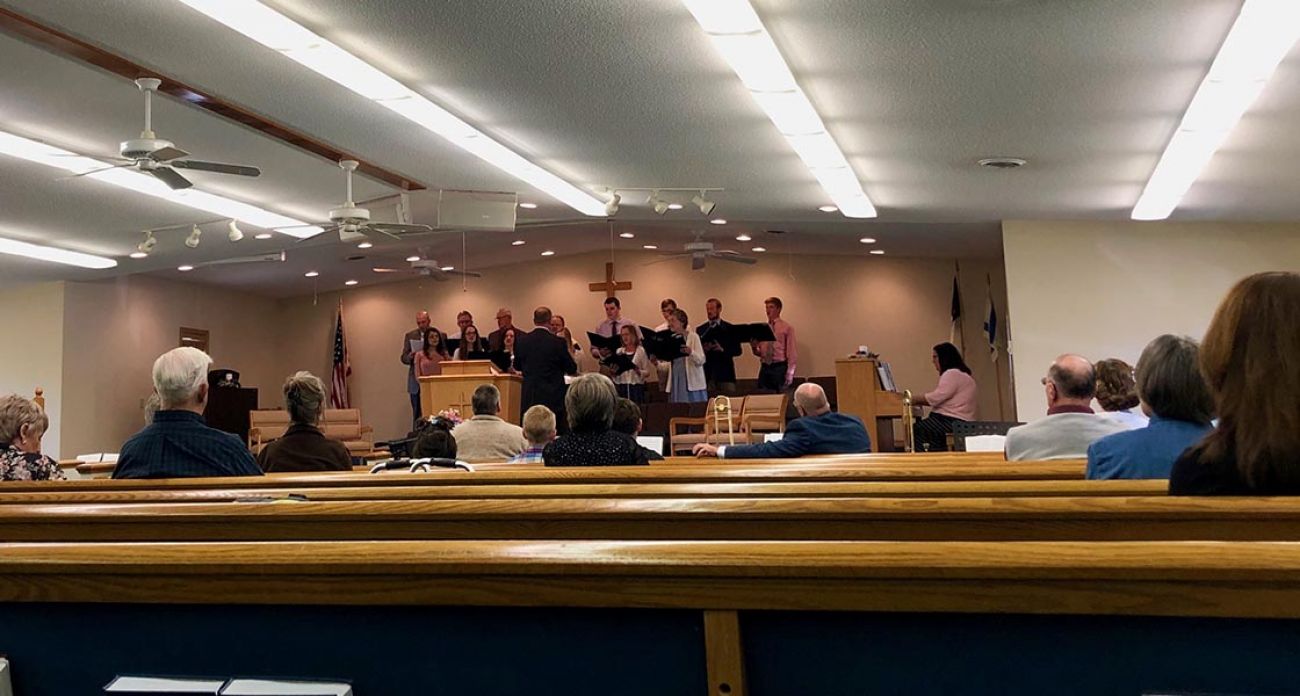
This is not a community walled off from the world of politics. The church’s website still contains a plea from 2017 urging the state to reject efforts to expand its civil rights law to protect the LGBTQ community. And Rusty Chatfield remains a believer in the power of Christian faith to revive America’s promise.
“Government is a God-ordained institution that is designed to restrain evil,” he wrote in a Facebook post days before last November’s elections. “Politics is not irrelevant. CHRISTIANS MUST BE INVOLVED IN THE POLITICAL PROCESS.”
In urging a vote for Republicans, the pastor added: “The great division in our country is not really between two political parties. It is between those who recognize God and those who do not.”
From its classrooms to the sanctuary and the soccer field out back, this church is where Lee Chatfield and six siblings spent much of their time growing up.
Lee — named after Baptist pastor Lee Roberson, founder of Tennessee Temple University, his father said — rose before dawn to run his paper route, head to school and then practice. When it wasn’t soccer, Chatfield’s preferred sport, it was baseball or basketball. On weekends, he worked at a local golf course. Church was Wednesday night and twice on Sunday. As a pastor’s kid, he was reliably in the pews.
Asked what was the most important thing he wanted his children to leave the nest with, Rusty Chatfield said simply: “We wanted them to believe the Bible and serve the Lord.”
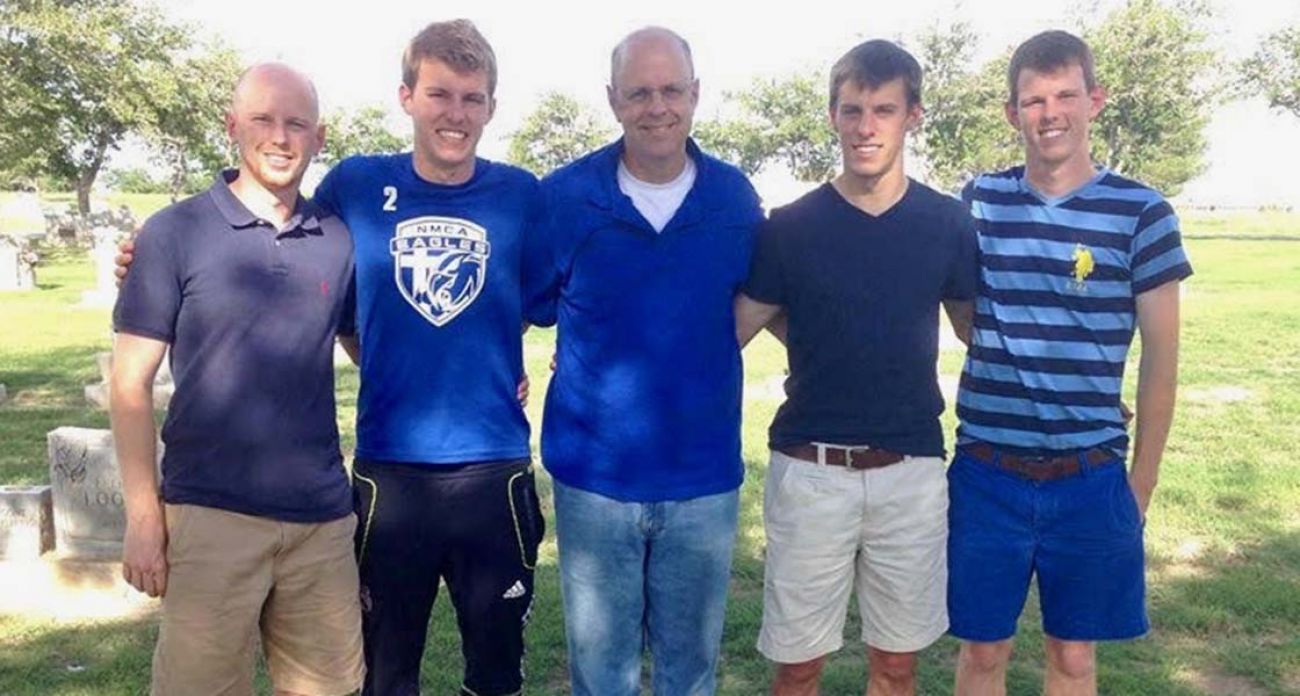
Lee traveled the region with his dad, checking in on congregants and doing service projects. One of his sisters grew up with autism before most people knew what therapies could help the condition. “We all kind of learned together how to take care of each other,” he said.
“He had a mischievous streak to him,” Ken Bradstreet, a Chatfield family friend, fellow churchgoer and former state representative, said with a laugh. He recalled Lee teasing Bradstreet’s son in elementary school about a crush on a girl.
“You could see it on his face sometimes,” added Barbara Bradstreet, Chatfield’s third grade teacher. “But he wasn’t bad, he just liked to have a good time.”
Though Chatfield says he didn’t consider working in politics until his 20s, conservative ideology was the water he swam in.
His father has long co-hosted “Freedom’s Foundation,” a talk radio show on the local Christian station, with Ken Bradstreet. The men would discuss “the Christian heritage of America” on the program, Bradstreet said, and Lee sometimes helped out with historical research.
“The purpose of government is not to provide for people’s housing or food or anything like that. The purpose of government is to protect their rights,” Bradstreet said of the show’s philosophical underpinnings.
“That’s the whole recipe in the Declaration of Independence. It talks about all our authority, all our rights come from God, and government comes from the people through their leaders for the purpose of preserving their lives and their property.”
Lee met his future wife, Stephanie Zondervan, when the two were still in high school. They married before graduating college and had three children by the time Chatfield was 26.
Preserving a childhood similar to his own for those kids, he said, was a turning point in his choice to run for office.
That decision was also an act of party rebellion: The office he sought in 2014 belonged to a two-term Republican incumbent of the state House, Frank Foster.
Word got out the Michigan House of Representatives would soon see legislation that would add LGBTQ protections to the state’s anti-discrimination law, the Elliott-Larsen Civil Rights Act. If successful, LGBTQ Michiganders would be shielded from being fired from a job, refused housing, or barred from public schools because of sexual orientation ‒ protections already afforded others based on gender, race, national origin, religion and more.
Foster, it turns out, would be the unlikely sponsor and major proponent of the legislation.
Chatfield said he felt the law, if passed, “was going to be used as a weapon against religious institutions.”
So Chatfield and Ken Bradstreet drove to Lansing to speak with Foster about the issue, Bradstreet recalled. When it was clear he wouldn’t change his mind, Chatfield got serious about mounting a challenge.
“That position simply didn’t fit the district,” Bradstreet said.
Foster wasn’t pleased, but he was hopeful.
“No one likes a primary” challenge, Foster told Bridge. “But I thought, OK, I think we can win.’”
Among other signature issues that first campaign, Chatfield opposed Medicaid expansion under the Affordable Care Act and Common Core, educational benchmark standards used in most states. The three issues, he felt, spoke to a core belief about the role of government.
“Many times,” Chatfield observed, “the more government gets involved and takes away individual responsibility from people, the more problems are created.”
“Part of the beauty of our system of government is you can run for office and leave it to the people,” he said. “I did what I thought was right and was going to leave the results in God’s hands.”
Despite being outraised by nearly $80,000, Chatfield defeated Foster in the Republican primary with 54 percent of the vote, sailed to victory in the general election and moved into Foster’s old office in Lansing two months later.
Foster now works as a lobbyist for Lansing-based firm Public Affairs Associates. He said he hasn’t changed his position on expanding Elliott-Larsen, but he and Chatfield now count one another as friends.
“Politics can be civil,” Foster said. “Politics isn’t everything, you can still have relationships outside of it.”
The Representative from Levering
Clay Genereaux, an owner of the Small Town Grill in Pellston, is bent over a searing flat top churning out omelettes and hashbrowns for a Saturday-morning breakfast crowd.
His wood-paneled diner is one of a handful of local gathering places along U.S. 31, an artery that snakes from Mackinaw City to Petoskey, hitting Chatfield’s hometown of Levering along the way. Unincorporated Levering — two square blocks of homes surrounded by miles of farmland — is technically where Chatfield lives, though he considers Pellston and Burt Lake, where he grew up, home.

For Genereaux, Chatfield’s name brought one thing to mind: How the young lawmaker avoided criminal charges after being caught in July 2018 with an unregistered, loaded .380-caliber handgun in a carry-on bag while going through security at Pellston’s airport.
The county prosecutor chose not to pursue criminal charges, arguing the state’s failure to update its law made it impossible to enforce. Chatfield called the episode an accident and apologized (“It was a mistake that certainly became a life lesson for me,” he told Bridge) and eventually paid nearly $2,000 in fees to the Transportation Security Administration.
Genereaux said he’s “got nothing against (Chatfield) personally,” but said in his view a regular person wouldn’t have been let off the hook.
“Ignorance is no excuse for breaking the law,” he said. “That just shows me about the good ol’ boys club.”
Added a waitress listening nearby: “I’d still be sitting in jail if it was me.” Several employees and diners murmured agreement.
That sentiment was common among roughly a dozen people Bridge spoke with at shops, gas stations and restaurants near the tiny outposts of Levering, Pellston and Alanson in Chatfield’s mostly Republican district. Many saw the incident as another indicator of a broken political system that favors those in power.
Even so, they largely expressed confidence in Chatfield’s integrity. “He’s an honorable guy,” said one man at the local hardware store. And since entering office, Chatfield’s votes have, for the most part, closely aligned with the conservative Republican base that sent him to Lansing.
He was among the five most conservative House members his first two years in office, according to MIRS News voting record scorecards. He was in the top 25 his second term.
In 2015, Chatfield voted to allow adoption agencies to refuse adoptions for same-sex or unmarried couples if it goes against their religious beliefs; in 2016, as part of the controversial package that dissolved the old Detroit Public School system, he voted for a bill that increased sanctions on striking teachers and barred them from collective bargaining with school districts on certain issues.
Political observers say while his politics have not changed, Chatfield has become more pragmatic since entering office. In the words of Bradstreet, he’s learned “not every issue is a spiritual issue,” a lesson Chatfield echoes when asked about it.
“Not every issue is a moral issue that you can view through a black and white, right and wrong lens,” Chatfield said. “When you approach an issue wanting to stay true to your core values, you also understand it’s possible to compromise on policy without compromising on your principles. But that first (requires) that you know what your principles are.”
In an early decision that surprised even him, Chatfield voted for raising the state gas tax in 2015, a lingering frustration for many anti-tax conservatives. He said he realized at the time that if he didn’t vote for it, Democrats may have found enough votes for an alternative plan that would have raised taxes more.
“The easy thing would have been to say no,” Chatfield said. “Sometimes to be involved and wrestle in the swamp, you’re going to get mud on your face.”
At the helm
Chatfield rose quickly in Lansing; entering the House as a committee chair (a rarity for a freshman legislator), he was elected Speaker Pro Tempore his second term and Speaker for the third.
Chatfield has an athletic build, close-cropped hair and a methodical speaking style. He’s controlled and relentlessly on-message when the cameras are rolling, apt to repeat the same talking points (“real rate relief” and “real reform with guaranteed rate reduction,” in the case of the recent auto insurance package).
He has a tendency to pepper conversations with verses from Scripture or quotes from historical figures, recited word-for-word — a holdover, he said, from childhood memorization exercises that were a favorite of his father.
“The Bible says only by pride comes contention,” he said. “So if you can’t get along with folks in government, then there’s not enough humility.”
Liberals in Lansing seem to agree he lives those values: A half dozen Democrats who spoke with Bridge said while they rarely agree on policy, Chatfield is open with his goals, willing to talk about issues and even points people to other potential bill supporters when he can’t offer support himself.
Secretary of State Jocelyn Benson and Attorney General Dana Nessel have told Bridge they have positive relationships with Chatfield. Nessel meets with him regularly and the unlikely pair have been reliable partners on criminal justice reforms.
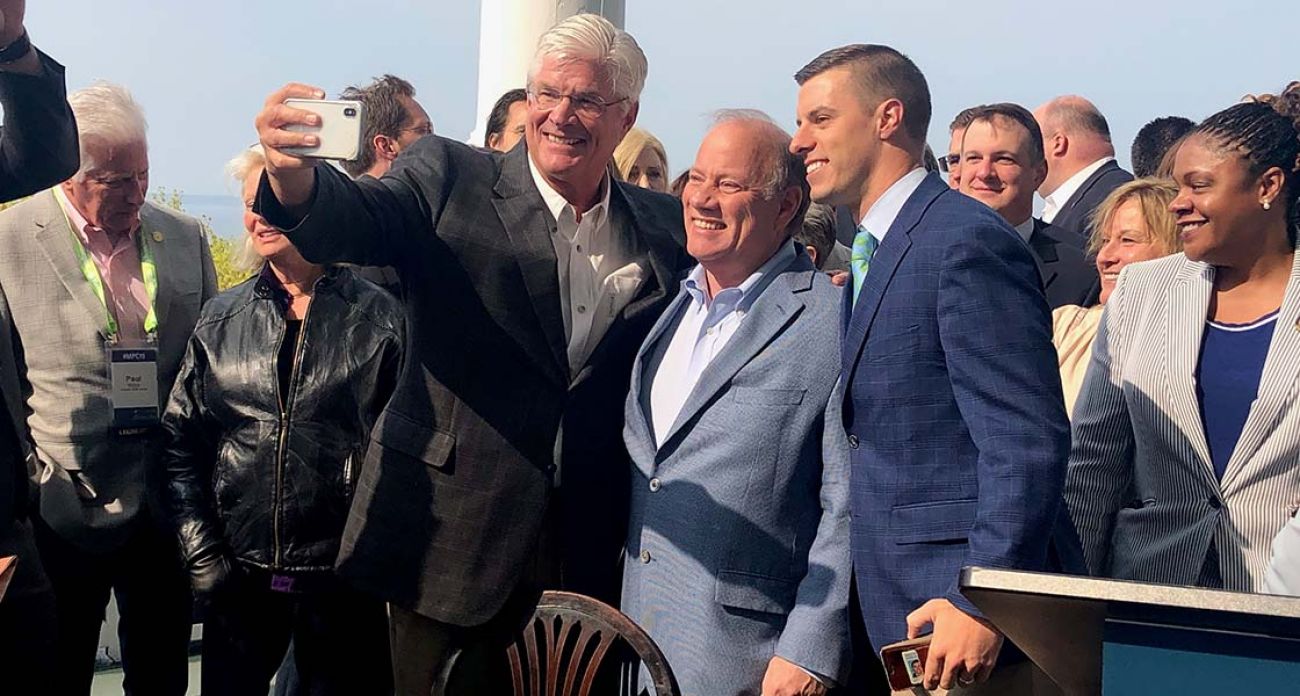
Chatfield also has a long-standing friendship with Sen. Jeremy Moss, D-Southfield, one of Michigan’s first openly gay state legislators, since the two first entered the House in 2015. Hot off a campaign in part spurred by Chatfield’s opposition to expanding state civil rights laws, the men entered their freshman class already knowing of one another, Moss said. Their friendship evolved from there as they worked together in committee.
“It would be very easy for us to put up walls and say the other is intolerable in this area,” Moss said. “But we do have dialogue on (expanding Elliott-Larsen), and also have a lot more to talk about than Elliott-Larsen, so it is a meaningful friendship for me here in Lansing.”
It’s hard for political observers to say whether Chatfield would be as amenable to working with Democrats were he Speaker a year earlier, when Republicans in the legislature benefitted from also having a governor in their party.
And some Democrats say Chatfield sometimes ignores their colleagues in favor of negotiating directly with Whitmer. In perhaps the most striking moment of conflict this term, House Minority Leader Christine Greig said Chatfield “looked in (her) eyes and lied” during negotiations over auto insurance reform. She told Bridge at the time she was referring to Chatfield’s promise to work with Democrats through a bipartisan committee, which was bypassed in the rush to a floor vote. Greig could not be reached for comment for this report.
The elusive auto deal, struck with Whitmer five months into this term, was a signature victory for Chatfield and Shirkey, one that colleagues say required discipline and trust among Republican rank and file.
“He listens and puts into action what you were talking about,” Rep. James Lower, R-Greenville, said of Chatfield’s leadership. “To the extent that I’ve had concerns with a bill or had input on the process, he’s always taken that seriously and I think done a great job.”
“I think that’s why he’s been able to unite the caucus as well as he has. It’s no secret in town that the House Republicans are as united as we’ve been in the last 10 or 20 years.”
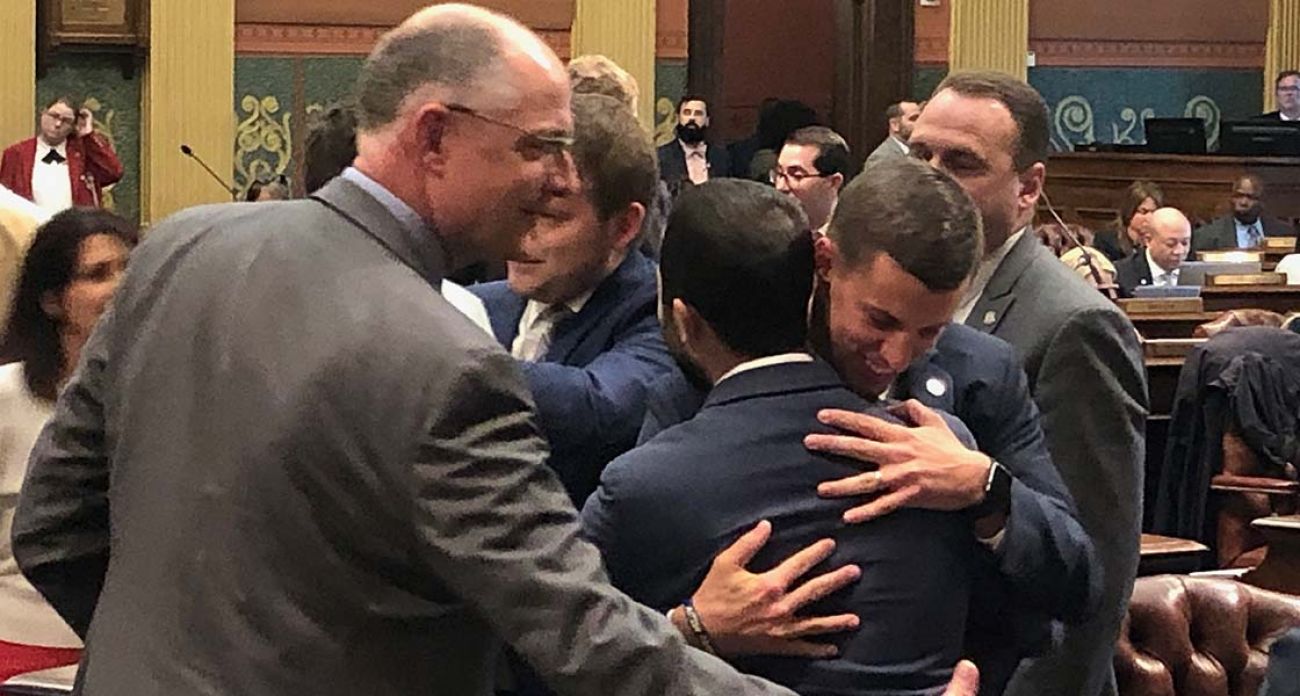
That unity, multiple Republican state representatives told Bridge, is due largely in part to the collaboration Chatfield fosters.
“It’s easy to block out differing viewpoints if it’s not your own,” said Rep. Brandt Iden, R-Oshtemo Township. “One thing that he always does is make sure that everyone has a voice.”
When he became Speaker, Chatfield installed a two-tier committee process in an effort to improve the quality of bill crafting. Rather than having a measure go from a single committee to a full vote on the House floor, most bills now pass two committees before receiving a floor vote, giving lawmakers more opportunities for input on legislation.
“The last couple of Speakers you heard a lot more complaining from Democrats and Republicans in terms of their ability to get things done,” said Adrian Hemond, a Democratic consultant and CEO of Lansing-based firm Grassroots Midwest. “I don’t hear as much about that type of thing as far as Lee’s concerned.”
The next big test — approving the state’s budget — looms on the horizon. “Obviously the proof’s in the pudding, he’s got to get his first budget done,” Hemond said.
That will surely include a showdown over road funding. Republicans have argued that money can be found in other ways, primarily by cutting spending elsewhere in the budget and changing the structure of taxes paid at the pump.
As summer unwinds with no deal imminent, the gulf between what the governor and Republican leaders want remains as wide as Burt Lake. But Chatfield said he has faith in the process, and in his own ability to bridge differences.
“When you approach a topic with humility in attempting to understand the other perspective, another side of the position, that’s when you can have the healthy conversation” that solves problems, he said.
“That’s the art of politics.”
See what new members are saying about why they donated to Bridge Michigan:
- “In order for this information to be accurate and unbiased it must be underwritten by its readers, not by special interests.” - Larry S.
- “Not many other media sources report on the topics Bridge does.” - Susan B.
- “Your journalism is outstanding and rare these days.” - Mark S.
If you want to ensure the future of nonpartisan, nonprofit Michigan journalism, please become a member today. You, too, will be asked why you donated and maybe we'll feature your quote next time!




